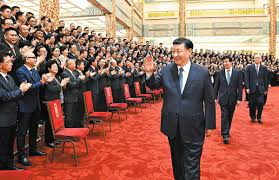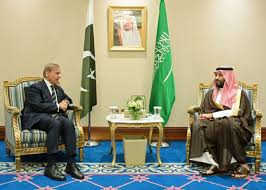‘Call me Giorgia’: Meloni’s EU election candidacy highlights Italy’s personality-driven politics

Italian Prime Minister Giorgia Meloni plans to run as a candidate in all five of the country’s European Parliament constituencies, at the top of the list of her conservative Brothers of Italy party.
Prime Minister Giorgia Meloni during the Brothers of Italy party Programmatic conference in Pescara on Sunday, April 28, 2024.
Georgia Meloni’s decision to stand in next month’s European Parliament elections marks a return to form in Italian politics, both for its relatively permissive rules on who can run, and for its cult of personality.
After weeks of speculation, the Italian prime minister confirmed at an electoral rally on 28 April that she would stand as a candidate in all five of the country’s European Parliament constituencies, at the top of the list of her conservative Brothers of Italy party, which sits in the European Conservatives and Reformists (ECR) group.
She has no intention of taking up any of the seats, which would require her to step down from her much more powerful role at the head of Italy’s government. Rather, she wanted to “ask Italians whether they are happy about the work we are doing in Italy and in Europe,” she told supporters in the eastern coastal town of Pescara.
But the fact that she can even stand as a candidate comes “from a peculiar characteristic of the Italian electoral law, which foresees three different situations: incompatibility, ineligibility to run, and inability to assume office,” says Alberto Alemanno, a professor of EU Law at the HEC Paris Business School and at the College of Europe in Bruges.
“In other systems, if you are incompatible, you cannot simply run as an MEP unless you resign from your previous role,” he told The Parliament.
Putting a household name on the ballot to mobilise voters isn’t a new tactic in Italy. The late Silvio Berlusconi, the businessman-turned-politician who dominated Italian politics in the 1990s and 2000s, led his Forza Italia party in two consecutive EU elections, then on both occasions gave up the seat to another candidate on the party list.
Only one in five Italian voters views this tactic favourably, according to a recent survey by Quorum and YouTrend for the SkyTg24 channel, with three in five taking a negative view. It also sends a negative message to EU partners, “as we are making the European election even more national that it already is,” Alemanno says.
But it’s likely to be effective nonetheless, he says, since a party leader’s name is much more recognisable than the “80 if not 90 per cent of [Italian] MEPs who are barely known.”
Perhaps as a result, several other party leaders have done the same as Meloni. Foreign Minister Antonio Tajani, Meloni’s coalition partner and head of Forza Italia, will lead his party in four out of the five constituencies. A former president of the European Parliament, he has shown no interest in returning there. Forza Italia is part of the centre-right European People’s Party (EPP) group.





